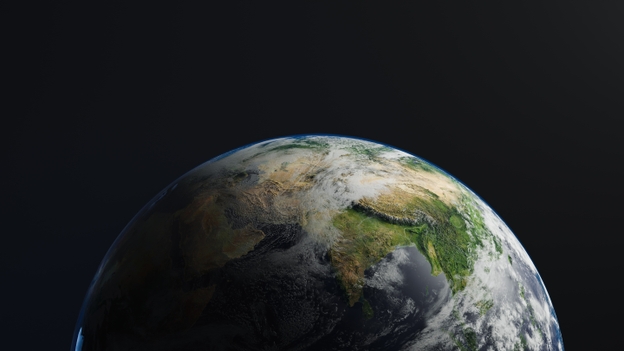January 4, 2024
Securing Human Rights Means Fixing the Information Ecosystem
It's been over 70 years since the UN first agreed on the Universal Declaration of Human Rights, but the world is still far from securing those rights for all. Climate change, armed conflict, creeping authoritarianism and the rise of extremism are just some of the human rights challenges that the world faces today. If we hope to make any real progress towards finding solutions to these monumental problems, we have to address the elephant in the room - the dangerously polluted digital information environment.
Malicious actors, from run-of-the-mill grifters to foreign influence operations agents, spread false and harmful content across the open web for money, power or both. Disinformation shreds our sense of shared reality and sparks deep polarisation, making the world’s shared threats more complex and harder to solve. It also prevents the kind of meaningful cooperation that led to the establishing of international human rights laws and standards in the first place. If that kind of collective action has never been more important to address the existential threats humanity faces today, then fighting disinformation needs to be near the top of the world’s agenda.
Disinformation poses a number of threats to the upholding of our human rights. First, it violates the basic right to self-determination by weakening the integrity of the civic processes that are essential to safeguarding democracy. In recent years, disinformation has laid the groundwork for actors to rig electoral systems, restrict voting and delegitimize election results. We’ve seen that disinformation can have lethal, lasting consequences for democratic stability in the US and Brazil’s respective January 6th and January 8th insurrections. Disinformation is a powerful weapon that political groups around the world increasingly wield to foment unrest and secure their own power.
Secondly, a muddied information environment undermines public trust in institutions that are designed to arm us with the facts we need to confront the massive challenges of our time, like climate change. Before you solve a problem, you have to agree that the problem exists, and the disturbing global success of decades-long climate denial campaigns show how disinformation can stop us from even taking that first step. Even though more frequent extreme weather events have made outright denial less potent, climate disinformation spreaders have shifted towards ‘delay and deceive’ messaging. These campaigns spread disinformation about the intentions, goals and solutions of public institutions, undermining support for climate action.
Finally, disinformation injects rocket fuel into social hatred, causing pre-existing social divisions to deepen, grow and spread further and faster than ever before. Constant exposure to rage-inducing, hate-filled disinformation has contributed to the dehumanisation of entire social groups and even led to violence being commited against them. At the same time that we’ve seen inequality and violence against women increase all across the world, gendered disinformation has exploded across the open web, particularly against women in politics. Similarly, as anti-Semitism rises across much of the world, anti-Semitic disinformation linking Jews to the origins of the COVID-19 pandemic, vaccines and pandemic politics proliferated exponentially after 2020. France and Germany, for example, saw a 7 and 13-fold increase respectively.
Creating a safer, fairer online information environment requires a multi-pronged, multinational approach that brings together governments, civil society and the private sector. The United Nations has formally identified disinformation as a critical threat to human rights and is working with member states and corporations to establish frameworks that protect individual rights. At least 27 countries have signed onto a UN declaration pledging to enact safeguards against online disinformation. The European Union’s Digital Services Act, a landmark law to better regulate advertising and disinformation across member states, has recently gone into effect. In the private sector, growing demand for ad placement transparency and brand safety tools from advertisers who don’t want their brands associated with disinformation can help redirect ad spend away from harmful content and remove the incentives for spreading it.
These initiatives represent a starting point in the fight to counter disinformation and reduce its harmful effects on our information landscape, but these efforts must be protected and expanded. Disinformation can be a powerful weapon, and entities who benefit from wielding it will be loath to cede any ground to anti-disinformation measures. In particular, it is essential that we do not allow efforts to combat disinformation to be delegitimised by those seeking to recast them as censorship. Understanding disinformation in the context of a universally agreed-upon human rights framework creates a shared definition, something that will be essential if we are to stand strong and united against disinformation and its many harms. If we don’t, nothing less than our most basic rights are at risk.
Related Content

How Disinformation Is Undermining Our Human Rights
International human rights law protects our most basic freedoms, but disinformation is threatening decades of progress. Here's why human rights advocates should pay attention.

Disinformation as Adversarial Narrative Conflict
What is disinformation? What is adversarial narrative conflict? Here's what you need to know.
